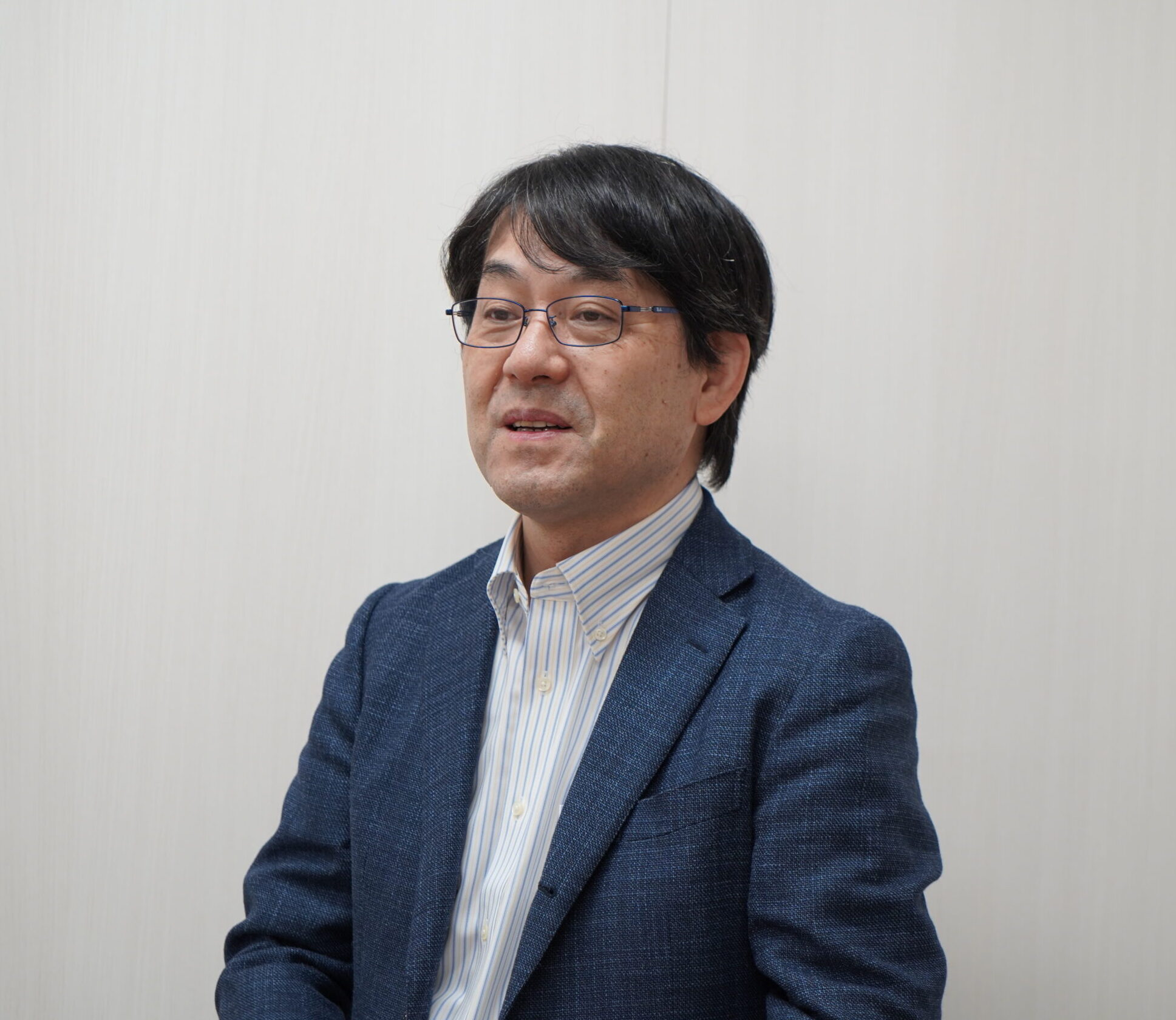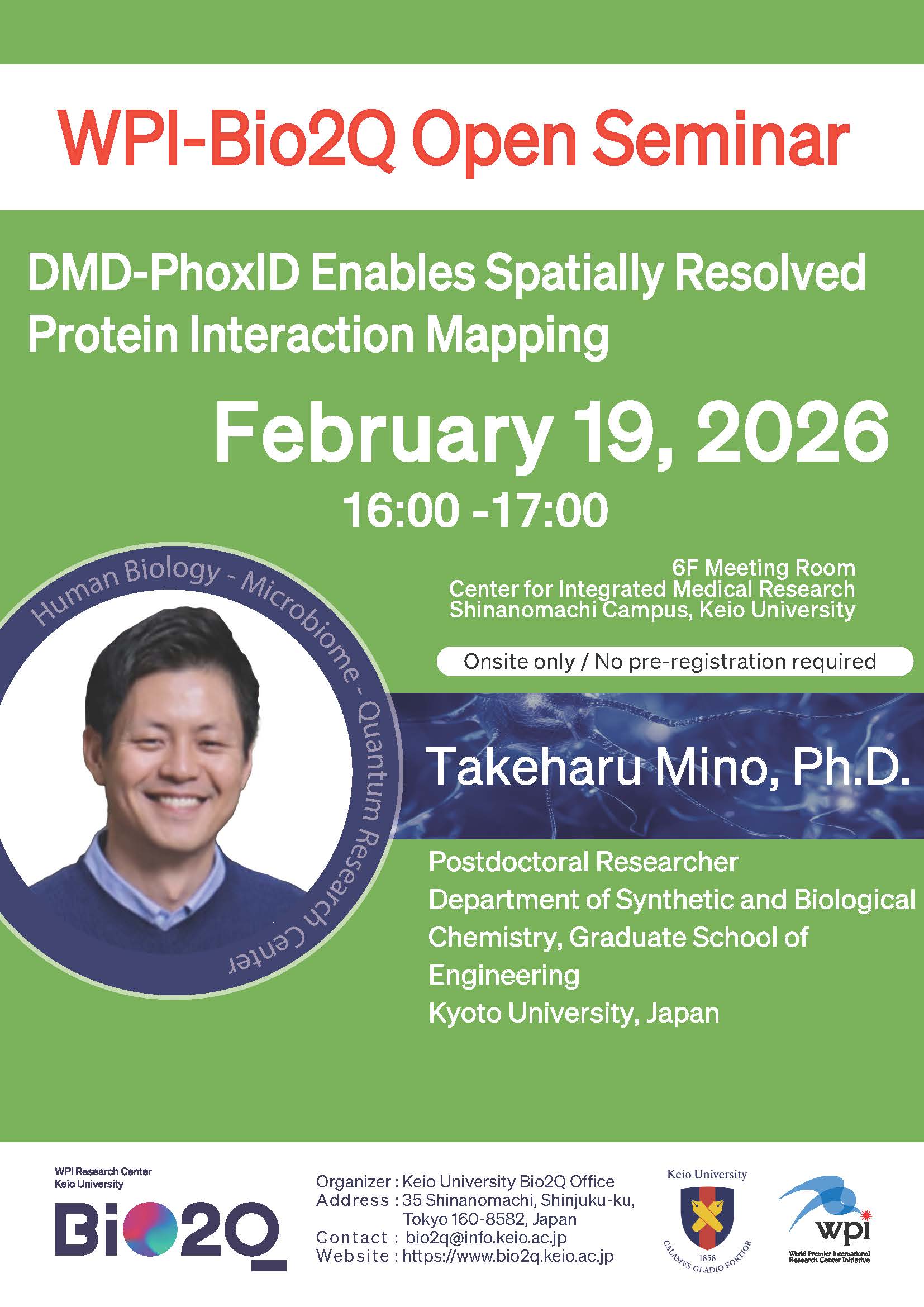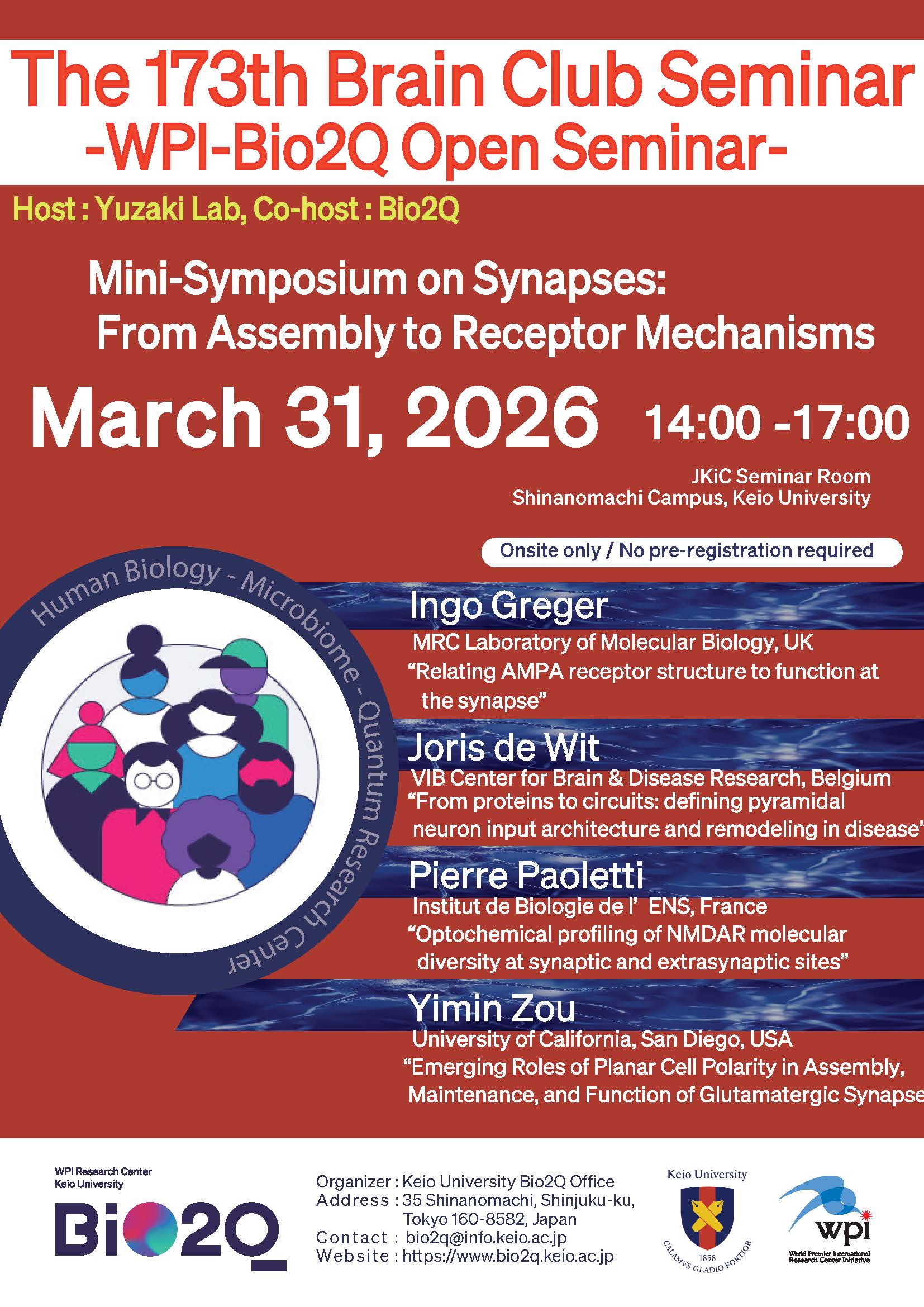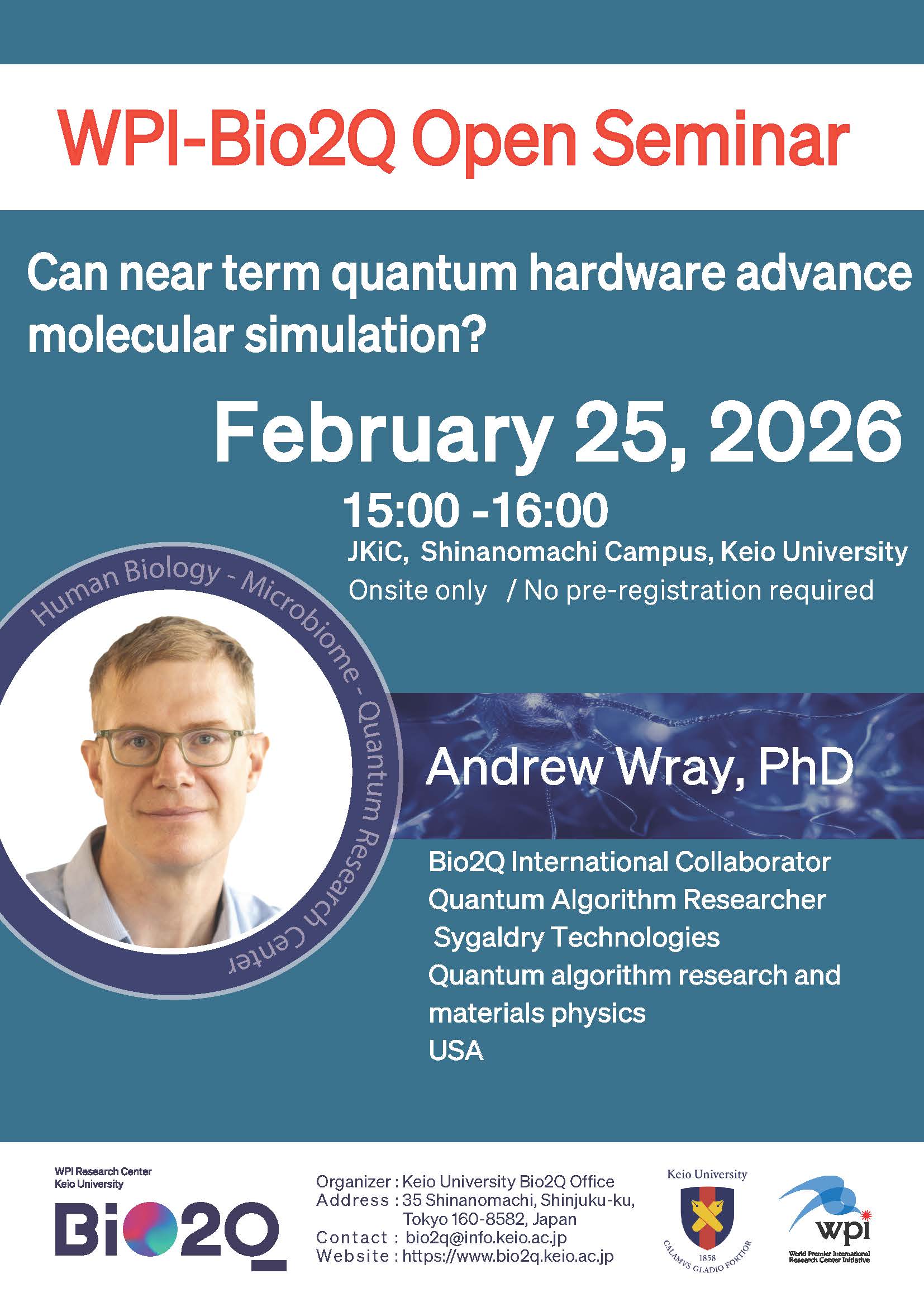ANNOUNCEMENT
Professor Michisuke Yuzaki Receives 2024 Uehara Prize
March 3, 2025

Professor Yuzaki
Credits: WPI-Bio2Q
We are pleased to announce that Professor Michisuke Yuzaki, Special Advisor to Director and PI of Bio2Q, has been awarded the “Uehara Memorial Foundation Uehara Prize.” This prize is awarded to Japanese researchers who have made remarkable achievements in the field of life sciences, particularly in areas related to the promotion of health, disease prevention, and treatment, and whose future work is expected to make even greater contributions.
To celebrate this award, a live stream lecture organized by the Uehara Memorial Foundation will take place on Tuesday, March 11th. For more details, please refer to the following link;
2024 The Uehara Prize Award Lecture (Live Stream) (Audio in Japanese only, with automatically generated subtitles)
Research Achievements Leading to the Uehara Prize
“Elucidation of New Synaptic Adhesion Mechanisms and Development of Methods for Modulating Neural Function”
In neural circuits that constitute the brain, information is transmitted through “synapses,” the junctions between nerve cells. Many neuropsychiatric, neurological, and neurodevelopmental disorders—such as depression, schizophrenia, dementia, and autism spectrum disorder—are believed to arise from “synaptic disorders,” which result from abnormalities in synaptic function or structure. However, the molecular mechanisms underlying these conditions remain largely unknown.
To investigate this, Professor Yuzaki focused on the cerebellum, a brain area with simpler neural circuits, as a model system. He advanced the understanding of the molecular mechanisms underlying synaptic plasticity (LTP/LTD), a fundamental process for memory and learning. This work was extended to other brain regions, such as the hippocampus and cerebrum, establishing general principles that could be applied across these areas.
Building on these findings, Professor Yuzaki developed an optogenetic tool that allows for the reversible modulation of LTD in vivo. This tool demonstrated the causal relationship between LTD at specific synapses in the cerebellum and motor learning. Additionally, his discovery of the synaptic formation molecule Cbln1 led to the groundbreaking identification of a new family of synaptic adhesion molecules belonging to the complement C1q family. The functional principles of these molecules were established for the first time.
Based on these insights into the function and structure of the molecules, Professor Yuzaki developed an artificial synaptic connector (CPTX) that induces excitatory synapses. This was shown to significantly improve learning and memory functions as well as motor functions in animal models of Alzheimer’s disease and spinal cord injury. These innovative research achievements are expected to contribute to the development of new therapeutic strategies aimed at synaptic repair.
More Bio2Q News
【2/19 Seminar】WPI-Bio2Q Open Seminar: Takeharu Mino, Ph.D.
Keio University Human Biology-Microbiome-Quantum Research Center (WPI-Bio2Q) will hold a seminar as follows. This is an event for faculty, ...
【3/31 Seminar】WPI-Bio2Q Open Seminar: The 173rd Brain Club Mini-symposium
Keio University Human Biology-Microbiome-Quantum Research Center (WPI-Bio2Q) will hold a seminar as follows. This is an event for faculty, ...
【Event Report】 Future Scientists Visit Bio2Q: Field Trip for Tokyo Gakugei Unive...
On February 5, 2026, the WPI-Bio2Q Research Center at Keio University hosted a science field trip for 25 first-year students from Tokyo Gaku...
【2/25Seminar】WPI-Bio2Q Open Seminar: Andrew Wray, PhD
Keio University Human Biology-Microbiome-Quantum Research Center (WPI-Bio2Q) will hold a seminar as follows. This is an event for faculty, ...
Two New Titles Released in the “Booklets Series for Young Readers” : Issue 09 (T...
The Digital Booklet Series for Young Readers, which introduces research activities at Bio2Q, has added two new issues. Issue 09 features ...












